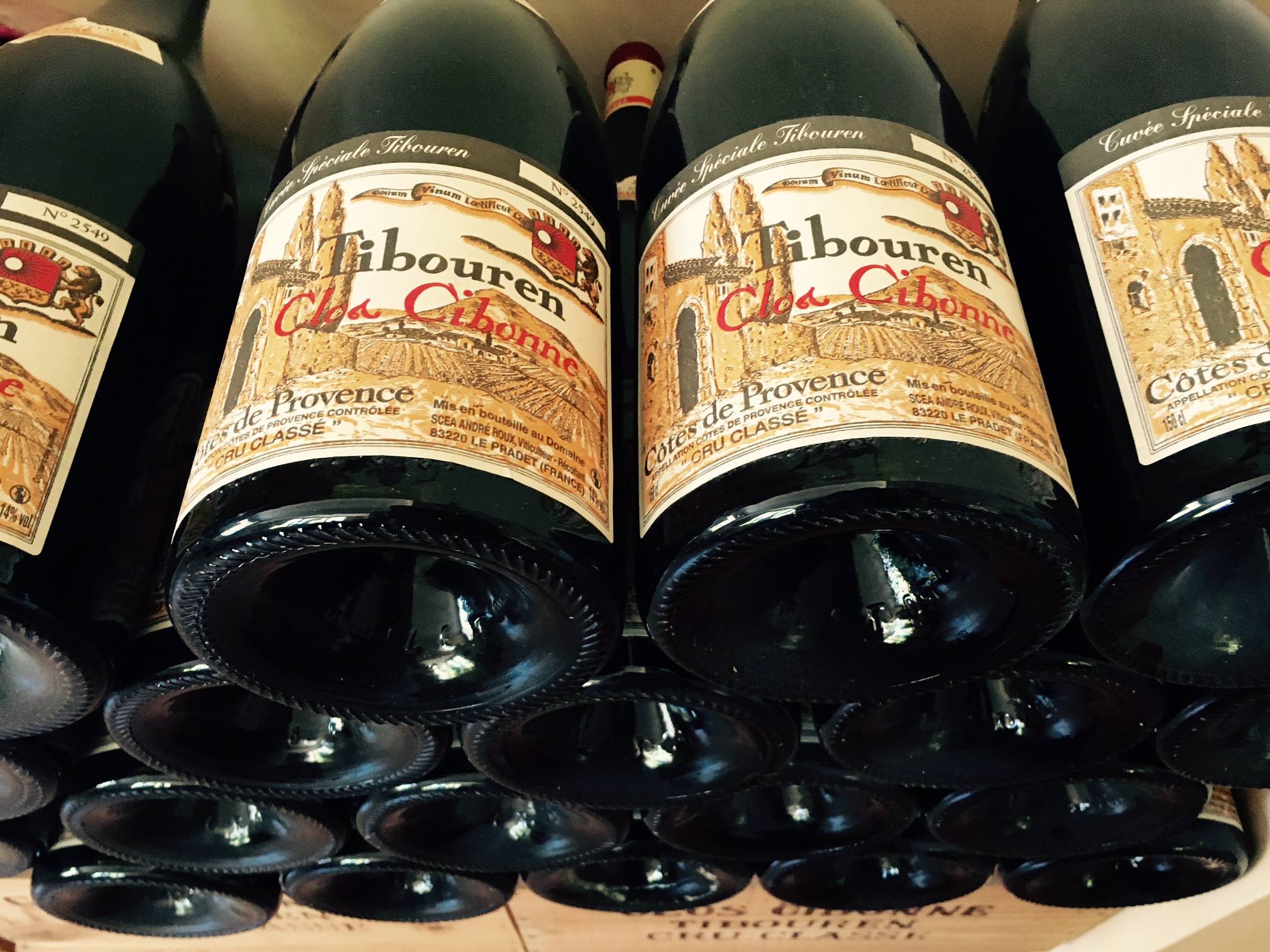Rosé has been the boom category of the summer, especially with frosé but made with the Tibouren grape rosé can be made into seriously gastronomic wines
Provencal rosé is a huge success story – exports of Provence, the leading rosé producing region of France, was up by an enormous 37% in volume and 50% in value in 2015. Hardly surprising given how delicate, refreshing and very moreish their rosés are.
I count myself a fan, often opting to pick up a bottle…or two.
While I was in Provence on a recent trip I headed to Le Pradet to see Clos Cibonne., a producer I have long admired who’s been on my list to see for a while now, because they make delicious rosé – but with a real difference. Their rosé is made with Tibouren.
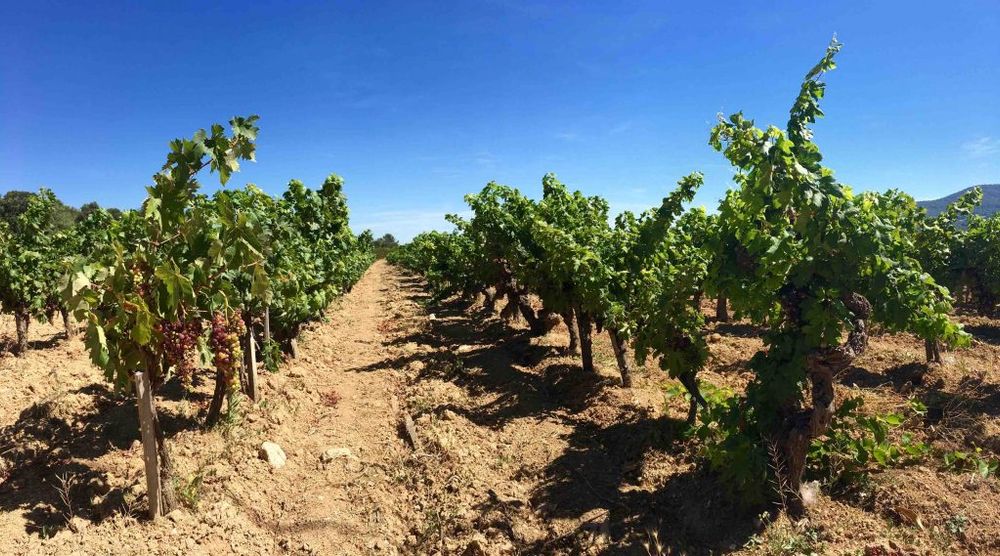
40 year-old Tibouren vines are used in the top cuvée
I visited Claude Deforge, who is proprietor and winemaker along with wife Bridget, the granddaughter of André Roux the founder. Having tasted his wines before I think Tibouren is a really interesting and highly unique varietal. The rosés are unlike any other – herbal and aromatic, dry with slight tannin and excellent structure that comes from ageing on the lees.
They are unique, serious wines in my opinion.
Clos Cibonne was restored to its pre-Revolution glory in the 1920s by André Roux who was a big fan of Tibouren, and planted the estate with this varietal, eventually being granted special permission by the AOC to put it on their labels.
The little maverick grape, Tibouren
Tibouren, Deforge stressed, is not an easy varietal to grow which is one reason for its decline. It’s not homogenous, and often creates funny looking bunches.
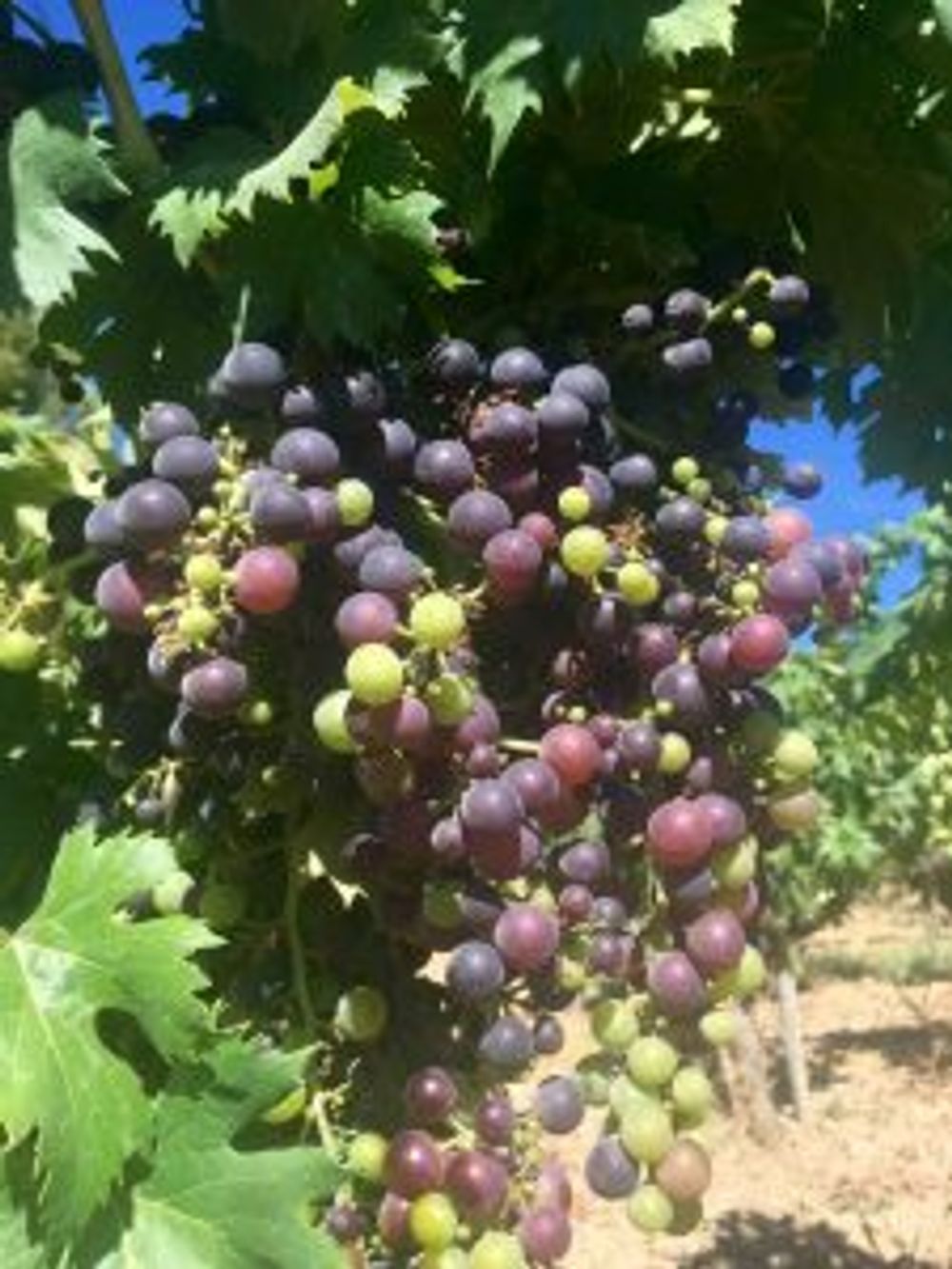
It’s also highly susceptible to rot. The positioning of Clos Cibonne, with the sea breeze coming in from both sides, means that this is avoided.
At Clos Cibonne they produce their Tibouren with indigenous yeasts, Deforge stated,
“I don’t want to make wine that tastes of grapefruit.” And they don’t.
Clos Cibonne’s domaine wines are all produced with majority Tibouren, apart from “Olivier”, a cuvée that is predominantly Syrah, a varietal that also fascinates Deforge.
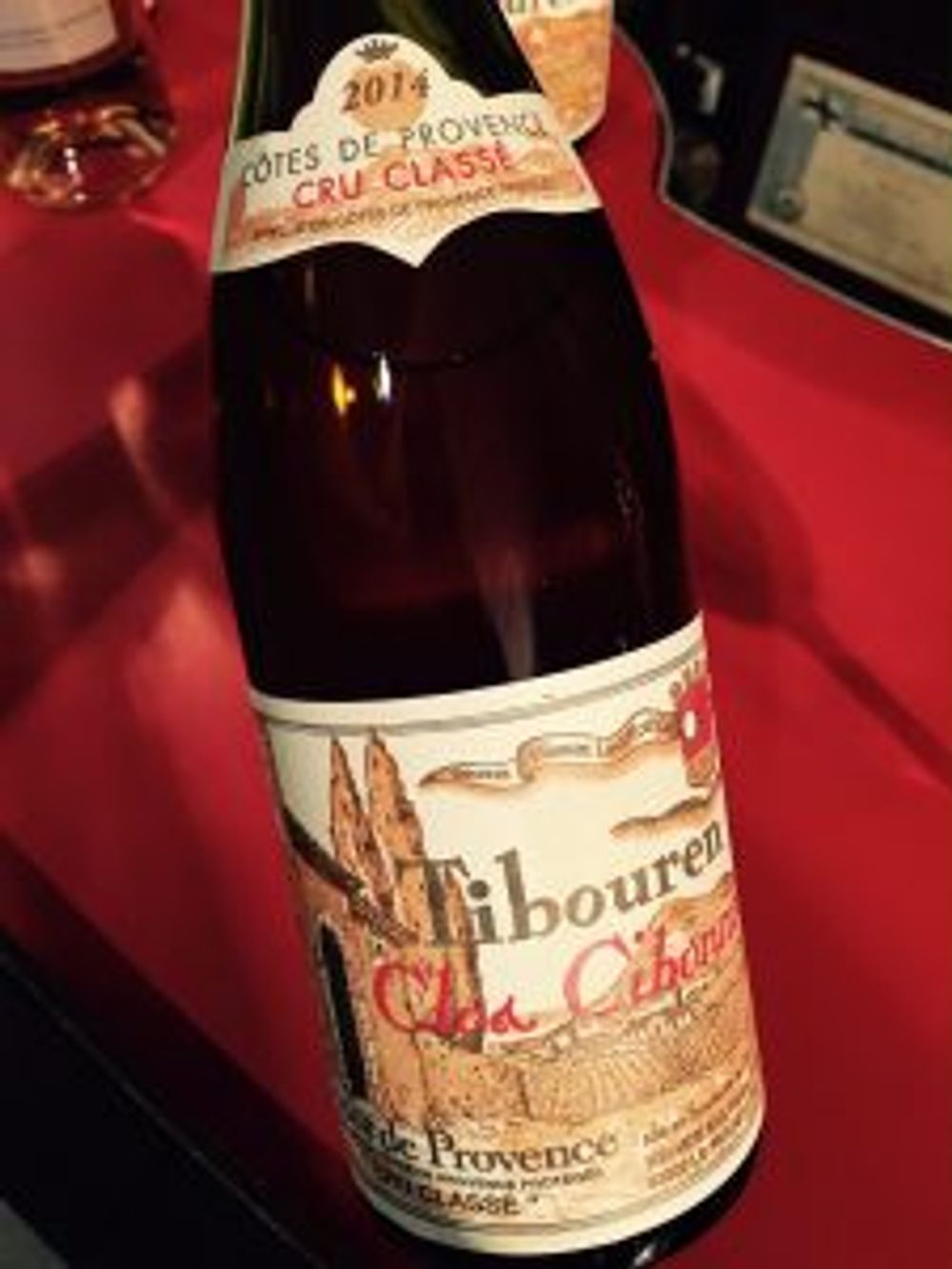
Clos Cibonne Tibouren “Tradition” Côtes de Provence Rosé 2014
The Tradition cuvée, is 90% Tibouren with 10% Grenache (he has to due to AOC labelling). It’s a fatter style of rosé with structure and spice: on the palate it is fruity with wild strawberry notes, but with a herbal element with orange peel and nutmeg on the finish. Aged on the lees for a year prior to bottling, lending the wine its distinct richness. This also means the vintage will be one behind the ‘norm’ in Provence.
Clos Cibonne “Caroline” Côtes de Provence Rosé
85% Tibouren, 10% Grenache and 5% Syrah, named after the daughter of Claude and Bridget. Caroline comes from the best plots of Tibouren that are over 40 years of age. As fermentation begins, the musts are put in casks with fermentation lasting a short week. This wine ages in 300L casks of which one third is new, and the rest being second to third fill barrels. This gives the resulting wine a real structure and length. The bright fruity, floral wine with its distinct herbal notes is complemented with added hints of vanilla, honey and further spice making this a gastronomic wine and one to age.
Clos Cibonne Tibouren “Tradition” Côtes de Provence Rouge 2013
90% Tibouren with 10% Grenache. This is a relatively new cuvée, having only begun in 2009 after a client was adamant he wanted a red. I can see why too – Tibouren produces gorgeous red wines and I’d love to see more of them. Very spicy showing red berries such as cherries, strawberries and redcurrants, but with a delicate, elegant body with not too much tannin.
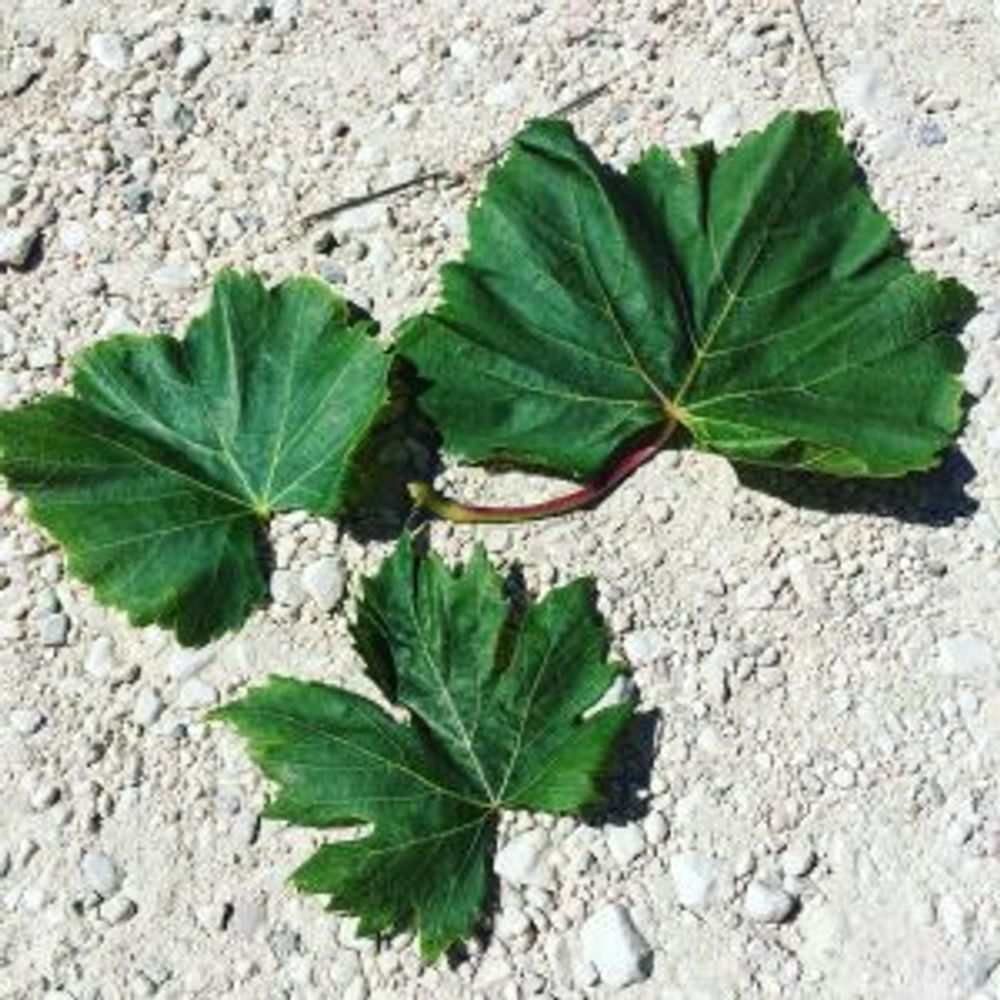
Contrasting varietal leaves of Clos Cibonne (from top left, clockwise) Grenache, Syrah, Tibouren
Clos Cibonne Tibouren “Olivier” Côtes de Provence Rouge 2013
70% Syrah, 30% Tibouren. Peppery and floral on the nose with notes of violets, complemented by hot spice. In the mouth it has brilliant structure and fine tannin; this wine will age very well. Red plums dominate the palate, with lifted spices and a herbal edge adding elegance on the finish.
I’m excited for the future of Tibouren, especially as consumer tastes move towards whites and rosés with a little more tannic structure and unique aromas. Furthermore, I think it has the potential to make some really interesting, lighter red styles. I would like to see more of it coming out of Provence.
